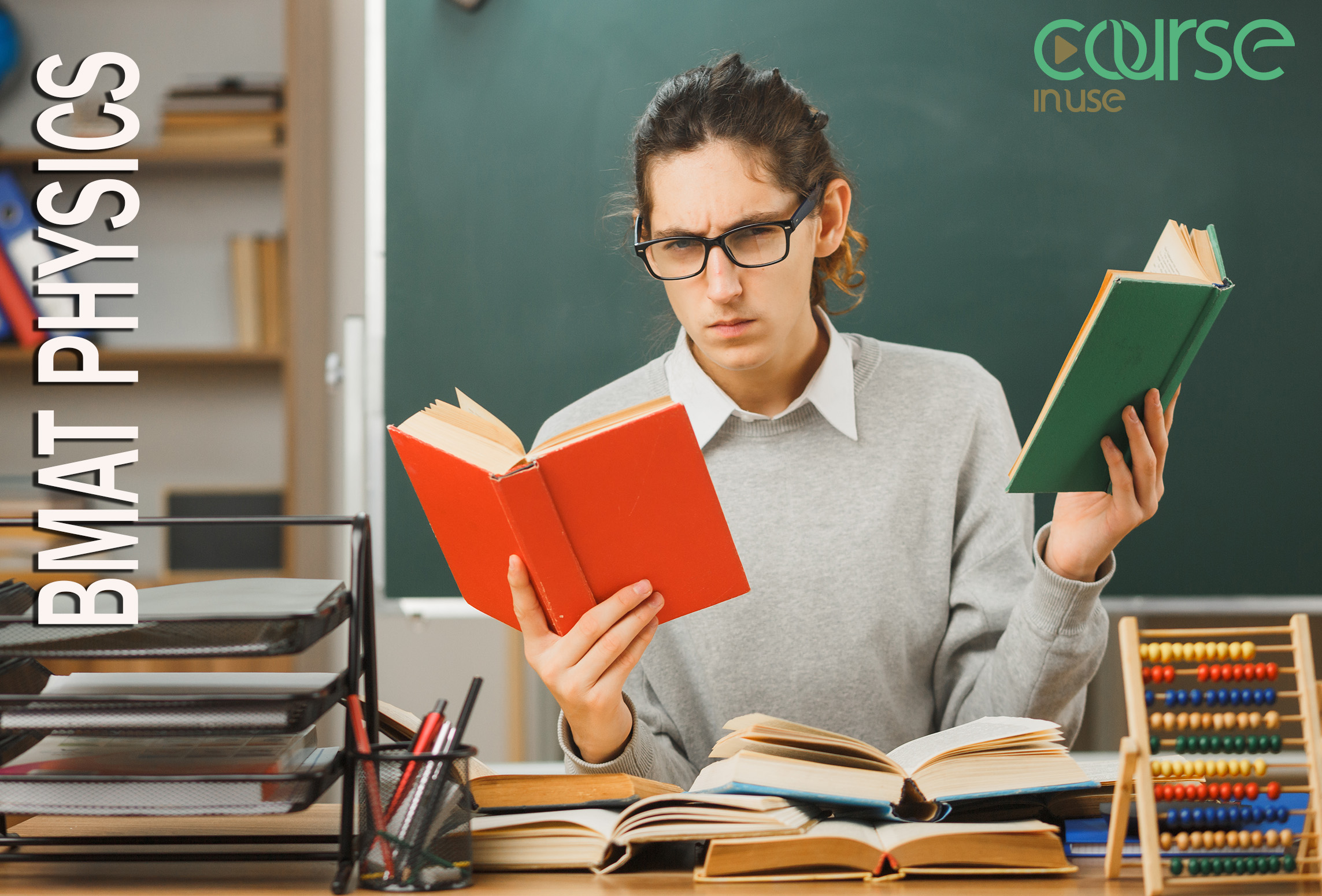Physics in the BMAT: Importance, Syllabus, and Success Strategies
Introduction
The BMAT (Biomedical Admissions Test) is a critical assessment tool for admissions into medical and health science programs. The test is divided into three sections, with the first section focusing on scientific knowledge and applications, including physics. A solid understanding of physics is essential for excelling in this section, as it tests fundamental principles that are crucial for success in medical studies.
Importance of Physics in BMAT
Physics is integral to the BMAT as it forms part of the scientific knowledge base required for understanding various biomedical concepts. It evaluates a candidate’s grasp of fundamental physics principles, which are crucial for problem-solving and analytical thinking in the medical field. Mastery of physics can significantly enhance a candidate’s performance in the BMAT, especially in Section 1, which assesses scientific knowledge and application.
BMAT Structure and Its Relation to Physics
- Section 1: Scientific Knowledge and Applications
Content: This section tests fundamental scientific knowledge and practical abilities across biological, chemical, and physical sciences.
Physics Concepts Covered:
– Mechanics: Kinematics, dynamics, and forces.
– Electricity and Magnetism: Basic principles of electric fields, circuits, and magnetism.
– Waves and Optics: Properties of waves, including light and sound waves, and their interactions.
– Thermodynamics: Principles of heat transfer, energy, and thermodynamic systems.
– Atomic and Nuclear Physics: Basics of atomic structure, nuclear reactions, and radioactivity.
- Section 2: Critical Thinking and Problem Solving
Content: This section assesses analytical and problem-solving skills, which may involve interpreting scientific data and addressing complex issues.
Physics Concepts Related
-Data Analysis: Interpretation of data related to physical phenomena.
– Problem Solving: Application of physics knowledge to solve complex problems and analyze results.
- Section 3: Writing Task
Content: Candidates are required to write essays in response to questions that may involve scientific and clinical topics, testing their writing and analytical skills.
Physics Concepts Related
– Analytical Writing: Crafting essays that analyze and discuss scientific issues with a focus on physics-related topics.
Success Strategies for Physics in BMAT
- Study Basic Scientific Concepts
Textbooks: Use authoritative textbooks in physics to solidify your understanding of core concepts.
Practice Tests: Complete practice questions to become familiar with the format and types of questions.
- Enhance Analytical SkillsData Analysis Practice: Engage with scientific problems and interpret data related to physics.Study Scientific Papers: Review academic articles to enhance analytical thinking and critical reasoning skills.
- Prepare for the Writing Section Practice Writing Scientific Essays: Develop your ability to write analytical essays on scientific topics, especially those related to physics. Feedback and Revision: Seek feedback from educators or advisors to refine your writing skills.
- Utilize Reputable Educational Resources and Study Guides: Use resources such as “The BMAT: The Official Guide” and “BMAT: An Introduction” for comprehensive preparation. Educational Websites: Explore reputable educational websites for additional practice and review.
Recommended Resources for Studying Physics from Cambridge and Oxford Universities
- University Physics with Modern Physics by Hugh D. Young, Roger A.
- “Physics for Scientists and Engineers” by Raymond A. Serway, John W.
- “Fundamentals of Physics” by David Halliday, Robert Resnick, Jearl Walker
- “Cambridge International AS and A Level Physics” by K.A.
- “Oxford Study Courses: Physics for the IB Diploma” by K. A.
- “Essential Physics for Cambridge IGCSE” by Michael Smyth
Conclusion
While the BMAT is not exclusively a physics exam, a strong foundation in physics is crucial for excelling in various sections. Familiarity with core physics topics and strategic use of educational resources can significantly enhance a candidate’s performance. With diligent preparation and effective strategies, candidates can improve their chances of success in the BMAT.


